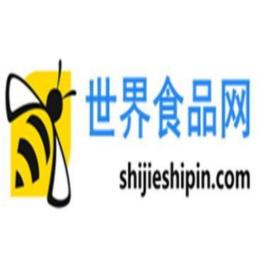核心提示:2022年10月21日,据欧盟食品安全局(EFSA)消息,应欧盟委员会要求,欧盟动物饲料添加剂和产品(FEEDAP)研究小组就谷氨酸棒杆菌CGMCC 17927生产的L-赖氨酸盐酸盐和 L-赖氨酸硫酸盐(l‐lysine monohydrochloride and l‐lysine sulfate)作为所有动物饲料添加剂的安全性和有效性发表科学意见。……(世界食品网-www.shijieshipin.com)
2022年10月21日,据欧盟食品安全局(EFSA)消息,应欧盟委员会要求,欧盟动物饲料添加剂和产品(FEEDAP)研究小组就谷氨酸棒杆菌CGMCC 17927生产的L-赖氨酸盐酸盐和 L-赖氨酸硫酸盐(l‐lysine monohydrochloride and l‐lysine sulfate)作为所有动物饲料添加剂的安全性和有效性发表科学意见。
经过评估,专家小组认为该添加剂对目标物种、消费者和环境都是安全的。评估中的添加剂被认为是氨基酸L-赖氨酸的有效来源。为了使补充的L-赖氨酸对反刍动物和非反刍动物同样有效,需要防止其在瘤胃中降解。部分原文报道如下:
Following a request from the European Commission, the Panel on Additives and Products or Substances used in Animal Feed (FEEDAP) was asked to deliver a scientific opinion on l-lysine monohydrochloride and l-lysine sulfate produced by Corynebacterium glutamicum CGMCC 17927, when used as a nutritional additive in feed and water for drinking for all animal species. The active substance is l-lysine, and it was produced in two different forms: monohydrochloride (HCl) or sulfate salts. The production strain was genetically modified. Neither viable cells nor recombinant DNA of the production strain were detected in the final products. Therefore, the Panel concluded that the additives did not pose any safety concern regarding the production strain. The use of l-lysine HCl and l-lysine sulfate produced by the strain C. glutamicum CGMCC 17927 in supplementing feed to compensate for l-lysine deficiency in feedingstuffs was safe for the target species. The FEEDAP Panel identified risks of nutritional imbalances and hygienic concerns for amino acids when administered simultaneously in feed and in water for drinking. The use of both forms of l-lysine produced by fermentation using C. glutamicum CGMCC 17927 in animal nutrition was considered safe for the consumers and for the environment. Exposure of users through inhalation to l-lysine HCl and l-lysine sulfate produced with C. glutamicum CGMCC 17927 was considered very likely. In absence of data, the FEEDAP Panel could not conclude on the potential of both forms of the additive to be irritant for skin and eyes or to be dermal sensitisers. l-Lysine HCl and l-lysine sulfate were considered as efficacious sources of the essential amino acid l-lysine for non-ruminant animal species. For the supplemental l-lysine to be as efficacious in ruminants as in non-ruminant species, it would require protection against degradation in the rumen.


























热门跟贴